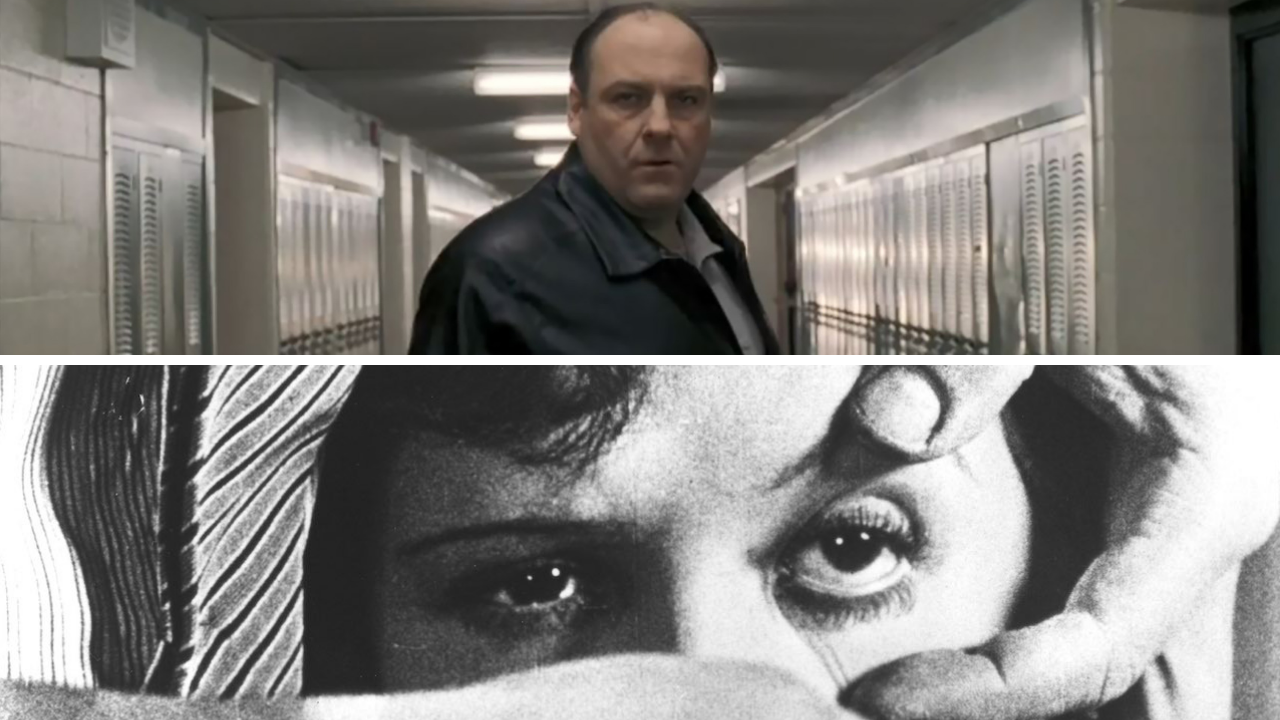
“Tony in Slumberland: The Dream Visions of The Sopranos”
Sunday, January 13, 2019
With a screening of The Sopranos episode “The Test Dream” (2004) + a 35mm print of Un Chien Andalou (1929, dir. Luis Bunuel).
Like The Twilight Zone and Twin Peaks before it, The Sopranos was fascinated by the visual language of dreams, and often used it to explore the subconscious minds of its characters—especially gang boss Tony Soprano (James Gandofini). Tony’s therapy sessions with Lorraine Bracco’s Dr. Melfi enabled him to interpret his own dreams, granting him insight into his own tortured psyche. He rarely acted on this information in ways that improved his relationships with family members or made him a happier person in the long term; he was more likely to use it figure out who to whack next. Luckily, the show’s scrutiny of dreams and dream language was as insightful and wide-ranging as its Tony’s was crude and self-serving. From season one’s “Isabella” through season two’s “Funhouse,” season three’s “Employee of the Month” and season five’s dazzling “The Test Dream” (written by Matthew Weiner), the series presented surreal subconscious imagery in alternately terrifying, comical, haunting and startling ways. And in such episodes as “From Where to Eternity,” “Proshai, Livushka,” “Join the Club” and “Mayham” the make us wonder if dreams and the afterlife are somehow connected.
Panelists: Matt Zoller Seitz; New York Times TV critic Margaret Lyons; David Gutman, a practicing psychoanalyst and an Assistant Clinical Professor in the Department of Psychiatry at Columbia University.
Part of “The Sopranos Film Festival,” presented by Split Screens. To buy a 10-film pass, click here.
Watch all episodes of The Sopranos® Series on HBO Go/HBO NOW.
- Running Time 100 minutes
IFC Center does not generally provide advisories about subject matter or potentially triggering content in films, as sensitivities vary from person to person. In addition to the synopses, trailers and other links on our website, further information about content and age-appropriateness for specific films can be found on Common Sense Media, IMDb and DoesTheDogDie.com as well as through general internet searches.